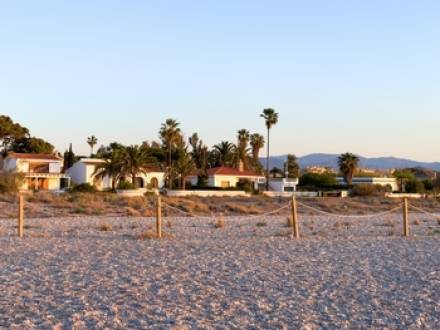Contact Our Firm
The use of the Internet or this form for communication with the firm or any individual member of the firm does not establish an attorney-client relationship. Confidential or time-sensitive information should not be sent through this form.
I have read and understand the Disclaimer and Privacy Policy.

Do You Really Own Beachfront Property in Florida?
 Most of us would assume that buying beachfront property means you own the beach area up to the ocean. In fact, this may or may not be true, and some stretches of privately owned coastline may remain accessible to the public, thanks to a legal concept known as the Customary Use Doctrine. Counties that are "tourist-heavy" have seen plenty of legal battles between beachgoers and coastal property owners thanks to this doctrine.
Most of us would assume that buying beachfront property means you own the beach area up to the ocean. In fact, this may or may not be true, and some stretches of privately owned coastline may remain accessible to the public, thanks to a legal concept known as the Customary Use Doctrine. Counties that are "tourist-heavy" have seen plenty of legal battles between beachgoers and coastal property owners thanks to this doctrine.
If you are considering buying oceanfront property in Florida, it is important to have a thorough understanding of the customary use doctrine as well as other laws that could impact your rights, privacy, and property value. The best way to do this is to consult with an experienced Oakland Park, FL real estate attorney. In addition to the customary use doctrine, you need to know about "mean high water line (MHWL), and the Public Trust Doctrine.
What is the Mean High Water Line?
In the state of Florida, the Mean High Water Line is the boundary between private and public property along the ocean. MHWL represents the average of all high tides over a 19-year period and is crucial for property owners as it dictates where public ownership of the area between high and low tides transitions to private ownership. The MHWL is determined by the National Ocean Service.
The Mean High Water Line is not the same as a high-water mark, which refers to the highest point reached by a body of water during a flood. Once the MHWL is determined, the state holds title to the land below the line, and the property owner owns the dry sand above the MHWL. This means that wet sand and submerged land are typically considered public trust land.
What is the Public Trust Doctrine?
Florida’s Public Trust Doctrine is essentially a component of the MHWL, establishing that the state holds title to lands under navigable waters in trust for the use and benefit of the public. The state maintains ownership and responsibility for the beach property on the ocean side of the MHWL, and the public is allowed to fish, swim, picnic, and walk on these areas.
In some cases, the public’s historical and continuous recreational use of the dry sand area on the ocean side of the MHWL could potentially be recognized under "customary use," allowing continued access even though the property is privately owned.
Understanding the Customary Use Doctrine
Based on historic, uninterrupted public use, the customary use doctrine governs the public’s right to access and use privately owned beachfront areas. This means that even property above the MHWL, which is theoretically private, could be considered public property if the public has historically used the dry sand area for recreational purposes. In 2018, Florida passed HB 631, requiring court approval before enforcing customary use. This sparked a growing tension between private landowners, local governments, and courts.
Many private landowners with beachfront property attempt to restrict public access with fences or signs. This can be risky without first acquiring a court ruling that rejects the customary use of the property. Landowners who restrict access without a court ruling could be cited for violating local ordinances or court orders. Customary use can reduce a homeowner’s level of privacy, lower property value, and make the property more difficult to sell. It can also cause insurance and development complications, making enforcement of trespass laws difficult.
Contact a Broward County, FL Real Estate Lawyer
You should always conduct thorough research before purchasing beachfront property in Florida, as these purchases present their own unique set of legal considerations. A knowledgeable Fort Lauderdale real estate attorney from The Elliot Legal Group, P.A. can provide the guidance you need before you sign the paperwork. In addition to real estate law, Attorney Elliot also practices international business law and is a licensed solicitor in both England and Wales. Call 754-332-2101 to schedule your initial attorney meeting.















